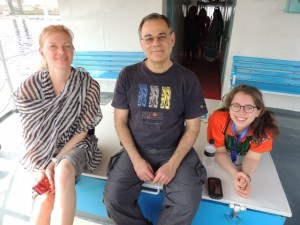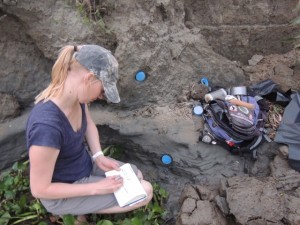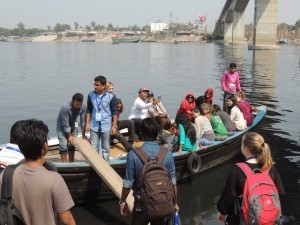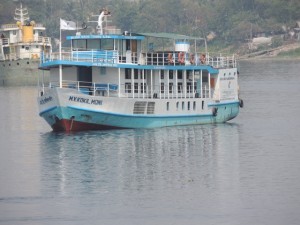Sailing Around Political Unrest in Bangladesh
With the roads in Bangladesh hazardous to drive because of the ongoing political unrest, our undergraduate sustainable development class managed to proceed with our class trip over Spring Break by doing all travel by boat.
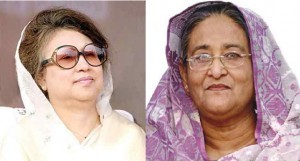
I am once again teaching a Sustainable Development course on hazard in Bangladesh. The highlight of the course is that the 10 students, the teaching assistant and I are all traveling to Bangladesh over Spring Break. However, our plans have been disrupted by the continuing political unrest in Bangladesh. The opposition BNP party is calling for new fair elections by calling for a continuous blockade of travel and periodic hartals – general transportation strikes. They have been trying to enforce it by tossing Molotov cocktails at vehicles that defy it. Over 120 people have been killed so far. The ruling Awami League refuses to give into violence and neither the UN, EU or US
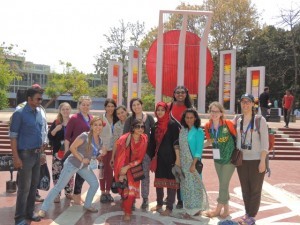
have been able to make a dent in the situation. The two parties and their women leaders hate each other. Neither side will back down on the unrest that started with the Jan 5 anniversary of the election. While more and more people are defying the blockade, after 2 months people have to make a living, the risk is too high to take a bus load of undergraduate students around the country.
Our solution, Plan B, is to stay off the roads and travel the country by boat. Dhaka, the capital is quiet, so we are visiting there at the beginning and end of the trip. The boat we were planning to use to visit the Sundarbans Mangrove Forest came up to Dhaka to meet us after we had a difficult trip. The 14 of us (Chris Small of Lamont and Liz Chamberlain of Tulane University are also joining us) made it to JFK skirting traffic
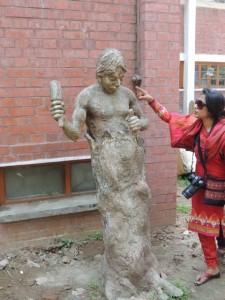
only to find a 4-hour delay on our flight. The airline nicely rebooted us for the next connection to Dhaka and escorted us through the airport to catch it. However 4 bags missed the connection. By the time we got to our hotel it was midnight and we still hadn’t had dinner. It was two AM by the time we go to bed. My TA, Matt, had to go back to the airport in the morning with Sukhen, but only 3 of the bags arrived. The missing one was Matt’s, but having lived in Dhaka, he had clothes in storage there.
The rest of us went to Dhaka University to meet our Bangladeshi counterparts, 8 students and 2 professors that are traveling with us. After a quick tour of a few spots around Dhaka, we headed to meet the Kokilmoni. I have sailed on her twice before. With Plan B, we will have to skip some areas, like the Brahmaputra River, that we cannot get to by boat in our limited time. However, we will get more time at other spots of interest and see what will be new parts of the country for me from a different vantage point. We started on a the Shitalakhya River east of Dhaka and sailed south in larger rivers finally passing the confluence of the Padma (combined Ganges and Brahmaputra) with the Meghna River before tying up at Chandpur for the night.
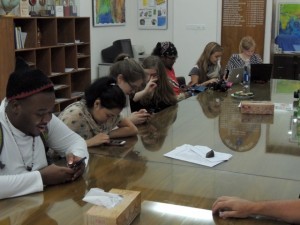
A boat is a much more pleasant way to travel than a bus with more places to hang out and rest from jet lag. The food is good and plentiful. The cabins are tiny and hot, while the showers are cold. The main thing the students missed is any opportunity to buy Bangladeshi clothes. Along the way we made two quick stops, one above and one below the confluence, for Liz to take samples for OSL analysis, a dating technique that uses electrons trapping in quartz to determine the last time the sediments were exposed to sunlight. The samples, collected by hammering a tube into the outcrop, must not be exposed to sunlight. Otherwise, these first days are quiet as it will take us until tomorrow afternoon to reach our first extended field stop. Boats are a comfortable, but slow way to travel.
